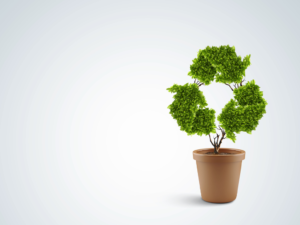The term known as “greenwashing” or “green makeup”, is used to designate companies, public or private industries, non-governmental organizations, and even governments that claim to be sustainable, but that make strategic use of this message, appropriating actions, and positions to create a positive image, in the face of public opinion, about the organization’s degree of environmental responsibility. In other words, false advertising.
Used for the first time in 1989, the expression appeared in an article in New Scientist magazine, when making an analogy to illustrate brainwashing.
Practitioners of greenwashing intend to positively associate their image with the necessary high standards related to concerns such as the environment, without taking any measure to collaborate with the minimization or solution of environmental impacts. On some occasions, greenwashing is adopted to mask the negative impacts that a brand is producing.
A survey by Canadian environmental consultant TerraChoice listed some frequent greenwashing practices, the most common of which revolve around vague statements without evidence, used to get consumer attention. Phrases like “100% ecological” and “environmentally correct”, as well as the use of the color green and images of flora used to make the consumer believe that the company has sustainable practices.
Another survey, this time carried out by the Brazilian Institute for Consumer Defense (IDEC), analyzed 509 cleaning products and housewares that claim to adopt socio-environmental practices on their labels. The Institute concluded that 47.7% should not have this description on their packages.
According to TerraChoice, another common tactic is to publicize a sustainable practice developed by the company to divert public attention from transgressions that affect the environment. Finally, some companies create their own (unofficial) sustainable certifications even without having evidence to corroborate their effectiveness.
Considering the increase of this practice, it is worth mentioning the importance of its combat. The president of Instituto Legado, who specialized in Social Entrepreneurship, James Marins, illustrated the two main ways to combat greenwashing. The most comprehensive of these is the government, which uses transparency rules so that companies suffer legal consequences through regulatory bodies.
The second bias is made by the stakeholder chain. Starting with large investors, who must demand compliance with demonstration rules, such as the GRI (Global Reporting Initiative), and supervise to verify that the proposal is, in fact, compatible with the company’s reality. The second element in this chain is the consumer, who can combat such practices by choosing companies and brands that follow the path of sustainability, using public opinion to keep institutions attentive and alert concerning the degree of responsibility they have been given.









